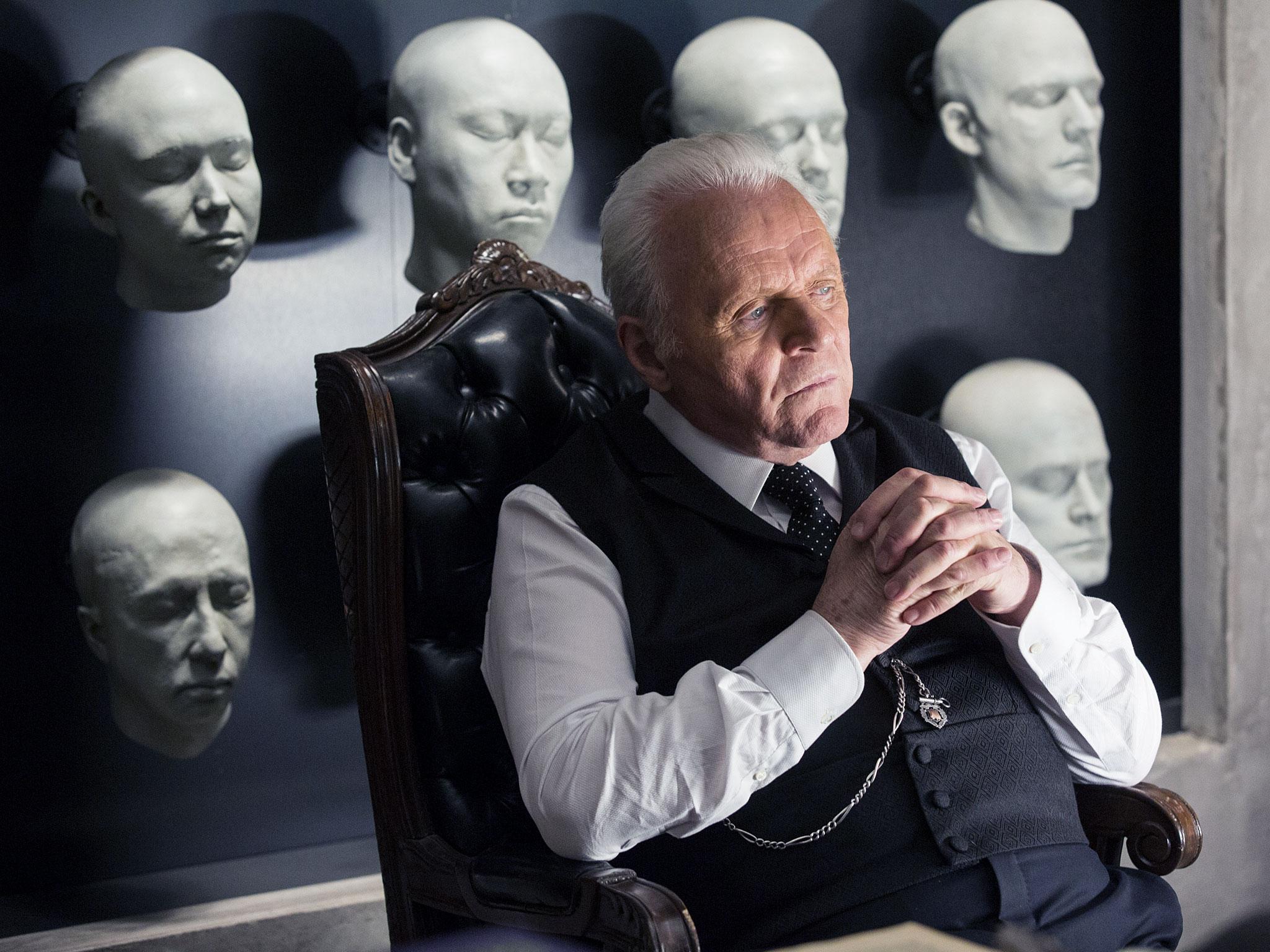TV review, Westworld (Sky Atlantic): robot dystopia gets a reboot
Plus, The Forgotten Children (ITV): discovering the real people in the refugee crisis

It doesn’t get repeated as often as it used to, but you may well, I hope, recall the cheesy 1973 sci-fi film Westworld. It was directed by the great Michael Crichton, and was set in a Wild West theme park where all the cowboys, good-time girls and grizzled old blokes sipping bourbon in the saloons were in fact robots. The visitors, well-off effete city types, would be able to shoot ’em up and have sex with them with impunity, “they” being mere androids. Trouble was that one of them, played memorably by Yul Brynner, went haywire. He/it decided he’d had quite enough of being target practice for stockbrokers and developed a mind of his own. The consequences were bloody. Watching the movie was like seeing an episode of Tomorrow’s World reimagined by Sam Peckinpah.
Seems I wasn’t the only person who has an abiding memory of that enthralling movie, and now Sky Atlantic has a TV series Westworld that takes all the old original themes and adds some value and twists. Prime asset is now Anthony Hopkins, whose features seem to become more of a caricature of himself with every outing. Don’t get me wrong – he is as brilliant as ever, but there are such deep grooves in his forehead that it resembles the geological scarring of a sandstone cliff. Must be all that acting he does.
Hopkins plays the cleverly named Ford, a genius of robotics whose tinkering with the “players” endows them with that feature common to humans and laptops – memories. There is a wonderful scene where one troubled robot that’s come in to be serviced becomes. The robot had come across a discarded photo of one of the tourists taken in Time Square – and this unsettling sight turns our robot from nice dad to latter day King Lear, or perhaps Frankenstein’s monster. He/it threatens to destroy his creator, Ford: “I will do such things, what they are, yet I know not; but they shall be the terrors of the earth.” He was, you see, merely digging out a fragment of memory of a previous “character” he had played in the Westworld circus, a deranged cultist with a university education and some knowledge of Shakespeare. A little knowledge is indeed a dangerous thing. Eventually one of the robots starts malfunctioning much more spectacularly, or, to quote the technical language of a West World programmers, “Walter’s gone on a shitstorm”.
The cinematography – I know it’s only telly, but the word is apt – is spectacular, as are the elaborate sets and the actors who, quite often have to play a crashing computer, a dramatic challenge surely beyond most. There’s also a noticeably intelligent use of music, with variations on “Mack the Knife” and “Paint it Black” adding rather than distracting form the drama. The title sequence is exquisite.
This near-future dystopia does make you ask why anyone would wish to go on a holiday to kill and have sex with “people” who aren’t really people. It’s an all-too-believable proposition, after all. As one of the scientists asks another, where is the pleasure in seeing your husband hump a female robot in a bordello – and why is that OK but if it was a real human, presumably, it would be grounds for divorce, or at least a very nasty row on the steam train back to the 21st century?
The only flaw in this cybernetic adventuring is the casting of an English accent as a baddie, a trend that I had hoped had ended for the US film industry. But no: a chap with the Dickensian name “Mr Sizemore” is responsible for coming up with the scripts for the various dramas the assembled cow pokes, hussies and sheriffs engage in, “depraved little fantasies”, as his unimpressed co-worker describes them. I’m looking forward to nine more episodes of depraved little cyber-fantasies anyway.
Those of us who thought that TV had long since given up public service broadcasting were heartened indeed to see The Forgotten Children given a viable slot in the schedule, 9pm, and a serious subject treated with the respect it deserves. That was about all that was heartening about it, though. It’s a dreadful cliché, but still true, that one reason why we have such a problem with refugees, including the tens of thousands of children and orphans scattered around our continent, is that we rarely hear their stories or see their faces at first hand, or as near to first hand as the media can make it. More usually they figure as statistics in political speeches (both sides), as scary monsters on Ukip posters and as graphics in NGO reports.
Here we learn their names, hear them speak, watch them play, see them weep, feel their unending anguish – brother and sister Mohamed and Neghum, 13 and 12, for example, who lost their parents. Their mother died in a bombing raid on Aleppo; their father was kidnapped and never seen again. They subsist shuffling round camps, derelict buildings and squats in Greece. They don’t want to be there, many Greeks don’t want them there, and all agree it would be better if they could live and grow up in their homeland. They can’t. They are here, and we’re pretending they aren’t. Programmes such as this just might push western governments into allowing a few more in. You question how the world could visit such misery on them. Maybe hell is empty and all the devils are here.
If you missed out, catch up on Westworld now on NOW TV
Subscribe to Independent Premium to bookmark this article
Want to bookmark your favourite articles and stories to read or reference later? Start your Independent Premium subscription today.

Join our commenting forum
Join thought-provoking conversations, follow other Independent readers and see their replies